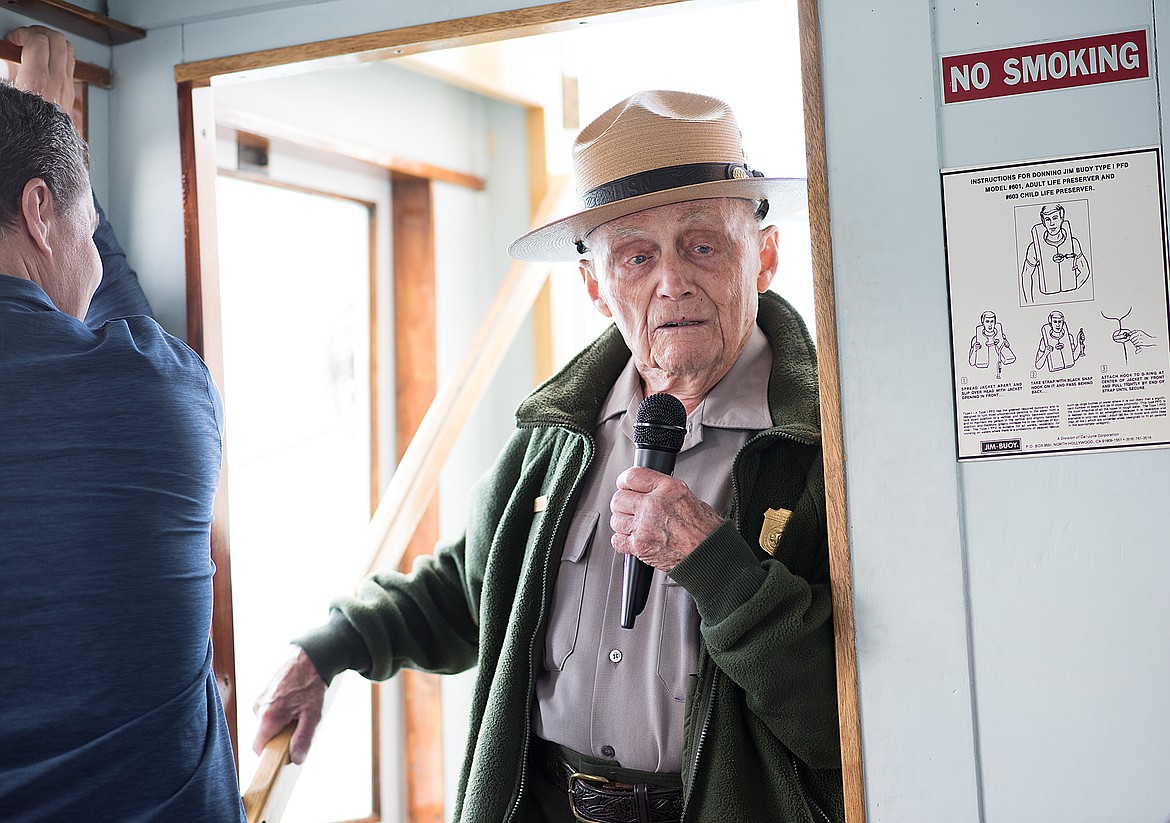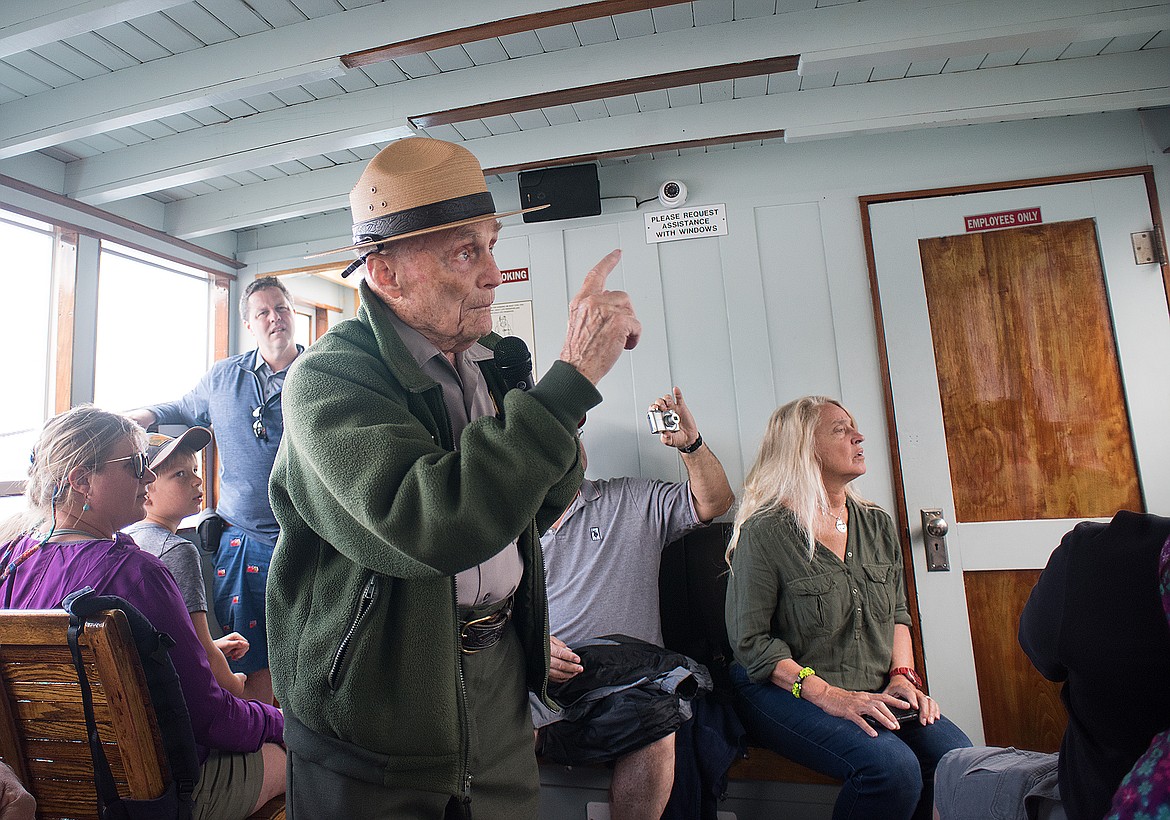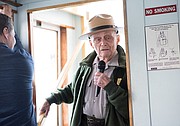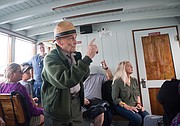Ranger Doug: 70 years of making folks smile
Doug Follett says he couldn’t afford to see the world, so he got in a job in Glacier National Park nearly 60 years ago.
“I’d have the world come to see me, well ... Glacier, but I was standing in the way!” he said with a big grin.
Make no mistake, many have come to see Glacier, but the smiles they left with often came from Follett.
Follett’s story-telling ability and recital of his original poems have brought many a laugh to the visitors of the park. At 93, his longevity and wit is remarkable.
“If you can’t do quality, do quantity,” he quipped on a recent hike through the woods with a group of tourists.
Follett jokes he started his career of entertaining visitors on the deck of the East Glacier Park Depot in 1927. His father worked for the Great Northern Railway and the Blackfeet would hold the infant Follett in their arms as they greeted passengers in their white buckskin garb as the tourists exited the train.
“My mother hated the Blackfeet,” he jokes. “They’re supposed to steal white kids and they kept bringing me back.”
Joking aside, Follett has long been a public servant. He taught history at Columbia Falls High School for 35 years and this year marks his 70th year working for the Department of Interior.
He worked 11 years as a tour guide at the Hungry Horse Dam, one year on a blister rust crew back in 1942 for the Park Service and now he’s in his 58th year as an interpretive ranger for Glacier National Park.
He’s logged thousands of miles on its trails and told equally as many stories.
Make no mistake, Follett knows Glacier. On a “tree” walk last week he spoke of how a spruce tree “talks back” when touched — it’s branches spring back. A hemlock, conversely, droops on top. Its needles are green on top and silver underneath. Or how the lodgepole covers the earth after fire for a reason — to protect the soils from eroding and to provide shade for other species that can’t take the direct rays of the sun.
Nature, in short, knows what it’s doing.
He also takes time to talk climate change. Noting that at his own home in Whitefish, the forests used to be dominated by Douglas fir. Today, it’s transitioning to Ponderosa pine, a species that grows in drier climates.
“Every 15 feet I have a yellow pine,” he said. “I have to assume it’s getting drier.”
He noted there used to be cedar, another tree that thrives in wet climates. Not anymore.
“When you live with (trees) you see it happen. Even when you’re old and slow and kind of dumb,” he quips. “Climate change is upon us.”
Follett is a master at making people smile, even a few famous ones over the years.
He recalled being asked to give a campground program to George H.W. Bush and his wife Barbara back when Bush was vice president in 1983. The couple stayed in a tent in the PGlacier.
Follett had prepared absolutely nothing for the event. He completely winged it. Though he did know the Bushes went to Hidden Lake fishing and they’d caught nothing.
So he started his talk, pointing out that there are three main questions he hears from visitors. One is, “where’s the bathroom?” The second is “where can I see a bear?” and the third is, “where can I catch a fish?”
He paused and looked at the Bushes.
The last question you don’t answer truthfully, not even to your mother, he said.
“They didn’t take you to Hidden Lake did they?” Follett asked the Bushes. Everyone knows the fishing is lousy at Hidden Lake.
He then told the Bushes he’d take them to his secret fishing hole.
Then he looked at the Secret Service guys that were watching over the talk.
“But I won’t take these guys with you,” he said. “They can’t keep a secret.”
The joke brought a roar from the Bushes.
Follett is equally gifted as a folk poet. He often drops off his verse at the Hungry Horse News.
Here’s a few lines from “The Owl.”
“So come on out
Like you always do
And say hello
With a hoot or two
When we do that
It seems so right
Just you and me
And the moon
And the night.”





